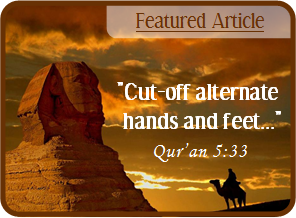


Verse 5:43 - "But how can they ask you to judge them when they have the Torah, in it is Allah's judgement..."
Some people wonder why does Allah say the Torah contains judgement of Allah, if it has been altered? It raises questions like, does it mean the Torah was never altered? Or is it okay if the Jews follow the Torah and not the Qur'an? And perhaps most significantly, can we as Muslims, take teachings from the Torah? etc.
The meaning to be deduced should not be literal. The verse is in the context of a group of Jews who came to the Prophet for judgment regarding a certain matter. Here, a simple technique is being used to point out the twisted intentions of the Jews who came to the Prophet for judgement at the time. Allah is simply making the point that if they were genuinely sincere in coming to the Prophet to follow Allah's rules, then why do they ignore the Torah which contained Allah's commands - whether it actually contains it at the time is not the point, in their minds it contains Allah's commands! Yet they ignore it... Therefore, if they truly believed so and failed to live up to it, what does it tell us about their sincerity in coming to the Prophet - is it to follow Allah? This connection with the Torah, is being drawn to expose the malice they are hiding when they approached the Prophet. We learn this from the verses before it:
(41) Messenger, do not be grieved by those who race to surpass one another in disbelief - those who say with their mouths, 'We believe', but have no faith in their hearts, and the Jews who listen eagerly to lies and to those who have not even met you, who distort the meanings of (revealed) words and say (to each other), 'If you are given this ruling, accept it, but if you are not, then beware!'. If Allah intends some people to be misguided, you will be powerless against Allah on their behalf. These are the ones whose hearts Allah does not intend to cleanse - a disgrace for them in this world, and then a heavy punishment in the Hereafter.
(42) They listen eagerly to lies and consume what is lawful. If they come to you (Prophet) for judgement, you can either judge between them, or decline - if you decline, they will not harm you in any way, but if you do judge between them, judge justly: Allah loves the just.
(43) But how can they ask you to judge them when they have the Torah, in it is Allah's judgement, and even then they still turn away? These are not believers.
Therefore, the point here is not that the Torah actually contains Allah's judgment (it may or may not), but given that they are meant to uphold it as Allah's judgment and failed to do so - demonstrates their insincerity when they approached the Prophet for judgement ("and even then they still turn away?"). When Allah says "How can they make you their judge", it is with the meaning, 'how can they be sincerely asking you to be their judge?'.
As further evidence, verse 5:41 is in fact suggesting that the Jews altered the Torah when it says, "يُحَرِّفُونَ الْكَلِمَ مِنْ بَعْدِ مَوَاضِعِهِ , they alter/distort the words/expressions from its places". Therefore, Allah is not saying that the Torah contains the correct commands of Allah. Another verse from the Qur'an is as follows:
"Woe to those who write the Book with their own hands then Say: "This is from Allah!", so that they can make a cheap gain! Woe to them for what their hands have written, and woe to them for what they gained." (Qur'an 2:79)
Therefore, there is no evidence from the Qur'an that Muslims should implement teachings from the Torah. However, many Muslims and their revered clerics use Biblical references as supporting evidence in interpolating the Qur'an while filling their exegesis on the Qur'an. Biblical teachings such as stoning to death, circumcision, and killing of apostates cannot be turned into Quranic concepts. The Qur'an supersedes all previous Scriptures and is the only guide required to be followed by the true believer.
"Step by step, He has sent the Scripture (Qur'an) down to you (Prophet) with the Truth, confirming what went before: He sent down the Torah and the Gospel earlier as a guide for people and He sent down the Criterion." (Qur'an 3:3)
As an additional point, many Muslims attempt to belittle the complete nature of the Qur'an in being the ultimate and only guide for a believer by trying to prove that their chosen book of hadith must complete the Qur'an. But verse 5:43, in its expression, "How can they come to you (prophet) for judgment when they have the Torah..." is a teaching telling us that when the prophet is no longer around, we must turn to the Qur'an for judgements.
To conclude, there is no evidence from the Qur'an that Muslims should implement teachings from the Bible. On the contrary, the same verses of the Qur'an goes to show that we must be more scrupulous in following the Qur'an, and the Qur'an only as the guide. The Qur'an stands as an independant, stand-alone and complete guidance for the true believer in teaching him or her true faith and devotion to Allah and the way of life and thinking deemed good by Allah.

Copyright © , QuranicPath. All Rights Reserved.

